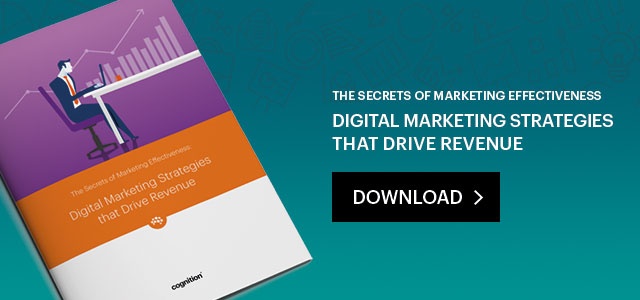In today’s fast-paced world of business and commerce, developing and maintaining an effective marketing strategy requires experience, dedication, and perhaps a bit of courage.
With marketing platforms growing consistently in number, functionality capabilities, and audience sizes, small and medium businesses often have difficulty managing a diverse combination of technological assets. What they need is a secret, competitive edge.
By merging automation techniques with a deeper understanding of enterprise-specific consumer psychology, the most competitive companies are successfully designing, implementing, and maintaining multifaceted marketing plans that generate not only more leads, but leads that are of higher quality. The key to success? Change the way your organisation thinks, feels, and acts.
Embrace change.
The only thing in life that remains constant is change. Just when we finally learn the latest updates to Facebook, Mark Zuckerberg changes them. Once we finally master the latest search engine optimisation techniques for our website to rise high in the rankings, Google’s Sundar Pichai changes them. And just when we think we’ve figured out which marketing platforms our customers like best, they change their minds. Instead of fearing change, learn to welcome it with open arms. It makes the process of change a lot less painful.
Understand that procrastination is just another form of fear.
It is only natural that we mere humans tend to resist change, and we resist for many different reasons. What will be the ROI for a new automation software? What if the IT team makes a mistake during the deployment phase? If our company diversifies its marketing strategies in include video platforms like YouTube, will our overall customer satisfaction rating plummet?
Before we know it, we are mired in self-doubt and second-guessing. Instead of taking action, we procrastinate. Forward-thinking organisations understand these types of psychological tendencies, and they use them to their advantage when designing an effective marketing strategy.
Become a problem solver.
Marketing departments are not the only ones who can easily become mired in fear and procrastination. Your customers and prospects experience these emotions, as well. The primary reason that someone is traveling to your website, your landing page, or your YouTube channel is because they have a problem that needs solving. The most effective marketing strategy incorporates high quality content that empathises the customer’s urgent desire to solve that problem quickly and cost-efficiently.
Focus on purchasing behaviours of your targeted demographic.
When publishing website content, writing a blog, filming a video, or designing sales copy for a promotional campaign, the best marketers always keep the persona profiles of the typical customer in the forefront of their minds. Where marketers often fall short, however, is in failing to either understand or incorporate the specific personality traits of those consumers into their company’s unique and specific marketing tactics. What makes their customers tick? Or even better, what makes their customers “click?”
Develop a deeper understanding of the customer journey
Few prospects click on the “buy” button during their very first visit to a company website. The customer experience is a journey. They might first hear about your organisation on Twitter…which leads them to a landing page for your latest product….which leads them to your Amazon page or perhaps the company website. Even after all that, they may just bookmark your webpage, wait a few days, and come back later to finally make a purchase.
How many marketing interactions does your typical customer require? Which aspects of your marketing campaigns ultimately encourage them to make a purchase?
Less is usually more.
Today’s online consumer can click through an astounding number of videos, websites, and social media posts per minute. The most effective marketing strategy grabs their attention within the first few seconds.
Furthermore, the message is usually simple and easy to understand. For textualised content, keep it short and to-the-point while avoiding the use of overly complicated or flowery language. For video marketing, consider publishing a series of shorter videos of less than 12-minutes each rather than a much longer 90-minute alternative.
Consider video.
The most successful bloggers use techniques like bullet-point lists and catchy subtitles to increase reader-friendliness. Simultaneously and perhaps unbeknownst to the reader, the blogger is also gently guiding the reader to the end of the document where a link to your company website conveniently appears.
The most effective video marketing campaigns follow a similar approach. Your potential customers are likely traveling to your YouTube channel to find a quick answer to a specific problem. Don’t make them wait for it. Give them the answer right away, and then spend the remaining portion of the short video demonstrating how the product or service works. If you are ultimately successful in solving their problem quickly and easily, the newfound customer will reward you with almost instantaneous loyalty.
Cognition is an expert in blending consumer psychology research with effective marketing strategy development. For more information about how best we can help your business, download, “The Secrets of Marketing Effectiveness: Digital Marketing Strategies that Drive Revenue.”





